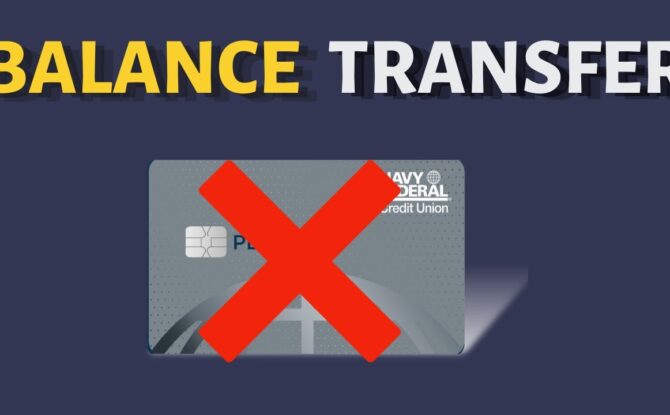Balance transfers are a financial tool used by individuals to transfer existing debt from one account to another, typically to take advantage of lower interest rates or better terms. In Chennai, where financial management is crucial, understanding the options for Top 10 balance transfer in Chennai can lead to significant savings and debt management.
Key Takeaways
| Importance of Balance Transfers |
| Factors to Consider Before Choosing a Balance Transfer |
| Top 10 Balance Transfer in Chennai |
| Conclusion |
| FAQs |
Importance of Balance Transfers
1. Lower Interest Rates
One of the primary reasons people opt for balance transfers is to secure lower interest rates on their outstanding debt. By transferring balances to accounts with lower APR (Annual Percentage Rates), individuals can reduce the amount of interest paid over time, thereby saving money.
2. Debt Consolidation
Balance transfer also offers the benefit of consolidating multiple debts into a single account. This simplifies the repayment process by combining various payments into one, making it easier to manage finances and stay on track with repayments.
3. Cost Savings
Overall, balance transfers can result in substantial cost savings for individuals. By taking advantage of promotional offers and introductory rates, borrowers can significantly reduce the overall cost of their debt, allowing them to pay off balances more efficiently.
Factors to Consider Before Choosing a Balance Transfer
Before deciding on a balance transfer option, it’s essential to consider several factors to ensure the best possible outcome.
1. Interest Rates
Compare the interest rates offered by different banks or financial institutions. Look for promotional rates or introductory offers that provide low or zero-interest periods to maximize savings.
2. Transfer Fees
Take into account any transfer fees associated with the balance transfer. While some banks offer zero transfer fees as part of their promotions, others may charge a percentage of the transferred amount.
3. Introductory Period Duration
Consider the duration of the introductory period during which lower interest rates apply. Longer promotional periods provide more time to pay off the transferred balance at a reduced cost.
Top 10 Balance Transfer in Chennai
| Bank/Lender | Processing Fee | Rate of Interest per month | Applicable Lower Interest Rate Period | Loan Repayment Tenure | |
|---|---|---|---|---|---|
| 1 | HDFC Ltd. Bank | 6.75% - 7.65% | Up to 20 years | Quick processing, minimal documentation | KYC, income proof, property documents |
| 2 | ICICI Bank | 10.85% - 12.50% | Up to 20 years | Fast disbursal, complete digital management | KYC, income documents, property documents |
| 3 | Axis Bank | 3.4% - 1% per month | Various | Quick processing, minimal documentation | KYC, income proof, property documents |
| 4 | State Bank of India | 0% - 1.7% p.m. | 6 months to 180 days | Quick approval, minimal documentation | KYC, income proof, property documents |
| 5 | Bank of Baroda | 10.85% - 16.50% | Up to 15 years | Fast disbursal, complete digital management | KYC, income documents, property documents |
| 6 | PNB Housing Finance | 9.25% - 15.00% | Up to 20 years | Quick processing, minimal paperwork | KYC, income proof, property documents |
| 7 | IDFC First Bank | 9.00% - 16.50% | Up to 18 years | On-the-spot approvals, fast disbursal | KYC, income proof, property documents |
| 8 | L&T Housing Finance | Not specified | Up to 20 years | Fast approval, transparent policies | KYC, income proof, property documents |
| 9 | LIC Housing Finance | Not specified | Up to 20 years | On-the-spot approvals, fast disbursal | KYC, income proof, property documents |
| 10 | Godrej Housing Finance | Not specified | Up to 18 years | Quick approval, minimal documentation | KYC, income proof, property documents |
Conclusion
In conclusion, balance transfers offer significant benefits for individuals in Chennai seeking to manage their debt more effectively. By carefully considering factors such as interest rates, transfer fees, and introductory period durations, borrowers can make informed decisions that lead to substantial cost savings and improved financial stability.
FAQs (Frequently Asked Questions)
1. Are balance transfers suitable for everyone?
Ans: Balance transfers may not be suitable for individuals with certain financial situations. It’s essential to assess your specific needs and circumstances before deciding on a balance transfer.
2. Will a balance transfer affect my credit score?
Ans: While a balance transfer itself may not directly impact your credit score, factors such as the credit limit on the new account and any missed payments can affect your creditworthiness.
3. How often can I perform a balance transfer?
Ans: There is no strict limit on how often you can perform a balance transfer. However, frequent transfers may raise red flags with creditors and affect your credit score negatively.
4. Can I transfer balances between different types of accounts?
Ans: In most cases, balance transfers are limited to transferring balances between credit card accounts. However, some financial institutions may offer options to transfer balances from loans or other types of accounts.
5. What happens if I miss a payment during the introductory period?
Ans: Missing a payment during the introductory period can result in the loss of promotional benefits, such as low-interest rates. Additionally, late payments may incur fees and negatively impact your credit score.


